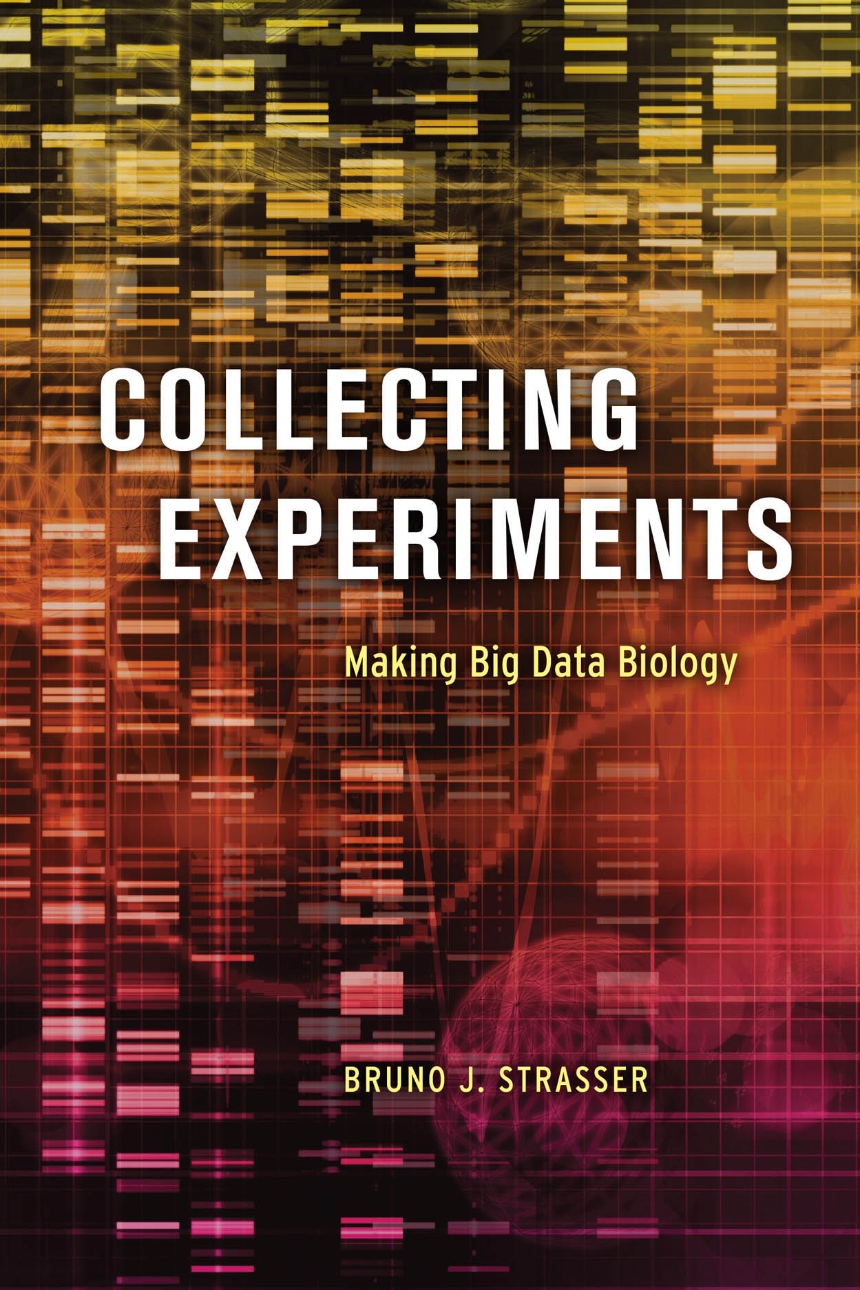Collecting Experiments
Making Big Data Biology
Databases have revolutionized nearly every aspect of our lives. Information of all sorts is being collected on a massive scale, from Google to Facebook and well beyond. But as the amount of information in databases explodes, we are forced to reassess our ideas about what knowledge is, how it is produced, to whom it belongs, and who can be credited for producing it.
Every scientist working today draws on databases to produce scientific knowledge. Databases have become more common than microscopes, voltmeters, and test tubes, and the increasing amount of data has led to major changes in research practices and profound reflections on the proper professional roles of data producers, collectors, curators, and analysts.
Collecting Experiments traces the development and use of data collections, especially in the experimental life sciences, from the early twentieth century to the present. It shows that the current revolution is best understood as the coming together of two older ways of knowing—collecting and experimenting, the museum and the laboratory. Ultimately, Bruno J. Strasser argues that by serving as knowledge repositories, as well as indispensable tools for producing new knowledge, these databases function as digital museums for the twenty-first century.
Every scientist working today draws on databases to produce scientific knowledge. Databases have become more common than microscopes, voltmeters, and test tubes, and the increasing amount of data has led to major changes in research practices and profound reflections on the proper professional roles of data producers, collectors, curators, and analysts.
Collecting Experiments traces the development and use of data collections, especially in the experimental life sciences, from the early twentieth century to the present. It shows that the current revolution is best understood as the coming together of two older ways of knowing—collecting and experimenting, the museum and the laboratory. Ultimately, Bruno J. Strasser argues that by serving as knowledge repositories, as well as indispensable tools for producing new knowledge, these databases function as digital museums for the twenty-first century.
392 pages | 35 halftones | 6 x 9 | © 2019
Biological Sciences: Natural History
History: History of Technology
Reviews
Table of Contents
Acknowledgments
Introduction Biology, Computers, Data
Biology Transformed
Naturalists vs. Experimentalists?
The Laboratory and Experimentalism
The Museum and Natural History
Biology Transformed
Naturalists vs. Experimentalists?
The Laboratory and Experimentalism
The Museum and Natural History
Chapter One. Live Museums
Microbes at the American Museum of Natural History
The Industrialization of Mice
Corn in an Agricultural Station
Sharing Flies
Viruses, Bacteria, and the Rise of Molecular Genetics
Putting Stock Centers on the Federal Agenda
Biological Collections Become Mainstream
The Industrialization of Mice
Corn in an Agricultural Station
Sharing Flies
Viruses, Bacteria, and the Rise of Molecular Genetics
Putting Stock Centers on the Federal Agenda
Biological Collections Become Mainstream
Chapter Two. Blood Banks
Measuring Species, ca. 1900
Alan A. Boyden’s Serological Systematics
A Museum in a Laboratory
Between Field and Laboratory: Charles G. Sibley
Collecting in the Field
Hybridization, Not Invasion
Alan A. Boyden’s Serological Systematics
A Museum in a Laboratory
Between Field and Laboratory: Charles G. Sibley
Collecting in the Field
Hybridization, Not Invasion
Chapter Three. Data Atlases
Understanding How Proteins Work
Cracking the Genetic Code
From the Field to the Laboratory
Margaret O. Dayhoff, Computers, and Proteins
The Atlas of Protein Sequence and Structure
A Work of Compilation?
The Gender of Collecting
Research with the Atlas
Whose Data? Whose Database?
Cracking the Genetic Code
From the Field to the Laboratory
Margaret O. Dayhoff, Computers, and Proteins
The Atlas of Protein Sequence and Structure
A Work of Compilation?
The Gender of Collecting
Research with the Atlas
Whose Data? Whose Database?
Chapter Four. Virtual Collections
From Physical to Virtual Models
The Systematic Study of Protein Structures
The Creation of the Protein Data Bank
The Natural History of Macromolecules
Privacy, Priority, and Property
A New Tool for Research
The Systematic Study of Protein Structures
The Creation of the Protein Data Bank
The Natural History of Macromolecules
Privacy, Priority, and Property
A New Tool for Research
Chapter Five. Public Databases
Information Overload on the Horizon
Margaret O. Dayhoff vs. Walter B. Goad
Europe Takes the Lead
Mobilizing the National Institutes of Health
Collecting Data, Negotiating Credit and Access
Distributing Data, Negotiating Ownership
A Conservative Revolution
Margaret O. Dayhoff vs. Walter B. Goad
Europe Takes the Lead
Mobilizing the National Institutes of Health
Collecting Data, Negotiating Credit and Access
Distributing Data, Negotiating Ownership
A Conservative Revolution
Chapter Six. Open Science
Databases, Journals, and the Gatekeepers of Scientific Knowledge
Databases and the Production of Experimental Knowledge
Sequence Databases, Genomics, and Computer Networks
The Rise of Open Science
Databases, Journals, and the Record of Science
Databases and the Production of Experimental Knowledge
Sequence Databases, Genomics, and Computer Networks
The Rise of Open Science
Databases, Journals, and the Record of Science
Conclusion
The End of Model Organisms?
The New Politics of Knowledge
Archives Consulted
Bibliography
Notes
Index
The New Politics of Knowledge
Archives Consulted
Bibliography
Notes
Index
